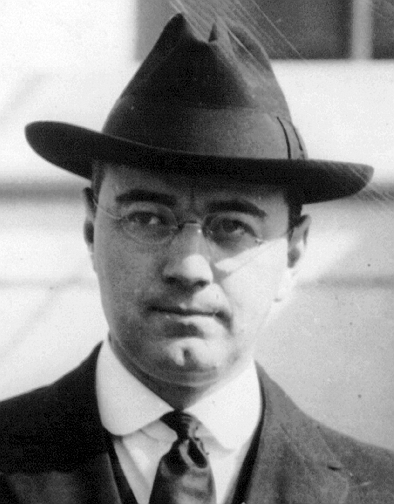|
Principles Of Labor Legislation
''Principles of Labor Legislation'' (1916) was a foundational US labor law text, written in the United States by John R. Commons and John Bertram Andrews. Contents *Chapter I: THE BASIS OF LABOR LAW i **1. The Labor Contract i **2. Individual Rights 5 **3. Due Process of Law 9 *Chapter II: INDIVIDUAL BARGAINING 35 **1. The Laborer as Debtor 35 **2. The Laborer as Creditor 50 **3. The Laborer as Tenant 61 **4. The Laborer as Competitor 68 **5. Legal Aid and Industrial Courts 80 *Chapter III: COLLECTIVE BARGAINING 91 **1. The Law of Conspiracy 91 **2. Mediation by Government 124 **3. Coercion by Government 139 **4. Unions of Government Employees 160 *Chapter IV: THE MINIMUM WAGE 167 **1. Economic Basis 168 **2. Historical Development 171 **3. Standards 179 **4. Methods of Operation 185 **5. Results 190 **6. Constitutionality 196 *Chapter V: HOURS OF LABOR 200 **I. Maximum Daily Hours 204 **2. Rest Periods 246 *Chapter VI: UNEMPLOYMENT 261 **1. Regulation of Priv ... [...More Info...] [...Related Items...] OR: [Wikipedia] [Google] [Baidu] |
US Labor Law
United States labor law sets the rights and duties for employees, labor unions, and employers in the United States. Labor law's basic aim is to remedy the "inequality of bargaining power" between employees and employers, especially employers "organized in the corporate or other forms of ownership association". Over the 20th century, federal law created minimum social and economic rights, and encouraged state laws to go beyond the minimum to favor employees. The Fair Labor Standards Act of 1938 requires a federal minimum wage, currently $7.25 but higher in 29 states and D.C., and discourages working weeks over 40 hours through time-and-a-half overtime pay. There is no federal law, and few state laws, requiring paid holidays or paid family leave. The Family and Medical Leave Act of 1993 creates a limited right to 12 weeks of unpaid leave in larger employers. There is no automatic right to an occupational pension beyond federally guaranteed Social Security, but the Employee Retire ... [...More Info...] [...Related Items...] OR: [Wikipedia] [Google] [Baidu] |
United States
The United States of America (U.S.A. or USA), commonly known as the United States (U.S. or US) or America, is a country primarily located in North America. It consists of 50 states, a federal district, five major unincorporated territories, nine Minor Outlying Islands, and 326 Indian reservations. The United States is also in free association with three Pacific Island sovereign states: the Federated States of Micronesia, the Marshall Islands, and the Republic of Palau. It is the world's third-largest country by both land and total area. It shares land borders with Canada to its north and with Mexico to its south and has maritime borders with the Bahamas, Cuba, Russia, and other nations. With a population of over 333 million, it is the most populous country in the Americas and the third most populous in the world. The national capital of the United States is Washington, D.C. and its most populous city and principal financial center is New York City. Paleo-Americ ... [...More Info...] [...Related Items...] OR: [Wikipedia] [Google] [Baidu] |
John R
John R. (born John Richbourg, August 20, 1910 - February 15, 1986) was an American radio disc jockey who attained fame in the 1950s and 1960s for playing rhythm and blues music on Nashville radio station WLAC. He was also a notable record producer and artist manager. Richbourg was arguably the most popular and charismatic of the four announcers at WLAC who showcased popular African-American music in nightly programs from the late 1940s to the early 1970s. (The other three were Gene Nobles, Herman Grizzard, and Bill "Hoss" Allen.) Later rock music disc jockeys, such as Alan Freed and Wolfman Jack, mimicked Richbourg's practice of using speech that simulated African-American street language of the mid-twentieth century. Richbourg's highly stylized approach to on-air presentation of both music and advertising earned him popularity, but it also created identity confusion. Because Richbourg and fellow disc jockey Allen used African-American speech patterns, many listeners thought that ... [...More Info...] [...Related Items...] OR: [Wikipedia] [Google] [Baidu] |
John Bertram Andrews
John Bertram Andrews (1880–1943) was an American economist. Background John Bertram Andrews born in 1880 in South Wayne, Wisconsin, and was educated at the University of Wisconsin and at Dartmouth College. Career Andrews taught economics at both the University of Wisconsin and Dartmouth College. In 1906, he co-founded the American Association for Labor Legislation (AALL) with other economists. In 1911, he founded the ''American Labor Legislation Review'' with the purpose of recording advances in social reforms. In 1921, Andrews was called by President Harding to serve on the Unemployment Conference. He was a member of the secretariat to the League of Nations' first official International Labor Conference in Washington, D.C. Works Together with John R. Commons John Rogers Commons (October 13, 1862 – May 11, 1945) was an American institutional economist, Georgist, progressive and labor historian at the University of Wisconsin–Madison. Early years John R. Co ... [...More Info...] [...Related Items...] OR: [Wikipedia] [Google] [Baidu] |
UK Labour Law
United Kingdom labour law regulates the relations between workers, employers and trade unions. People at work in the UK can rely upon a minimum charter of employment rights, which are found in Acts of Parliament, Regulations, common law and equity (legal concept), equity. This includes the right to a minimum wage of £9.50 for over-23-year-olds from April 2022 under the National Minimum Wage Act 1998. The Working Time Regulations 1998 give the right to 28 days paid holidays, breaks from work, and attempt to limit long working hours. The Employment Rights Act 1996 gives the right to leave for child care, and the right to request flexible working patterns. The Pensions Act 2008 gives the right to be automatically enrolled in a basic occupational pension, whose funds must be protected according to the Pensions Act 1995. Workers must be able to vote for trustees of their occupational pensions under the Pensions Act 2004. In some enterprises, such as universities, staff can Codetermina ... [...More Info...] [...Related Items...] OR: [Wikipedia] [Google] [Baidu] |
Sidney Webb
Sidney James Webb, 1st Baron Passfield, (13 July 1859 – 13 October 1947) was a British socialist, economist and reformer, who co-founded the London School of Economics. He was an early member of the Fabian Society in 1884, joining, like George Bernard Shaw, three months after its inception. Along with his wife Beatrice Webb and with Annie Besant, Graham Wallas, Edward R. Pease, Hubert Bland and Sydney Olivier, Shaw and Webb turned the Fabian Society into the pre-eminent politico-intellectual society in Edwardian England. He wrote the original, pro-nationalisation Clause IV for the British Labour Party. Background and education Webb was born in London to a professional family. He studied law at the Birkbeck Literary and Scientific Institution for a degree of the University of London in his spare time, while holding an office job. He also studied at King's College London, before being called to the Bar in 1885. Professional life In 1895, Webb helped to found the London Sc ... [...More Info...] [...Related Items...] OR: [Wikipedia] [Google] [Baidu] |
Beatrice Webb
Martha Beatrice Webb, Baroness Passfield, (née Potter; 22 January 1858 – 30 April 1943) was an English sociologist, economist, socialist, labour historian and social reformer. It was Webb who coined the term ''collective bargaining''. She was among the founders of the London School of Economics and played a crucial role in forming the Fabian Society. Early life Beatrice Potter was born in Standish House in the village of Standish, Gloucestershire, the last but one of the nine daughters of businessman Richard Potter and Laurencina Heyworth, a Liverpool merchant's daughter; Laurencina, was friends for a time with the prolific Victorian novelist, Margaret Oliphant during the 1840s. Both women were campaigned in Liverpool at the time (See Margaret Oliphant Autobiography Edited by Elizabeth Jay, page 25-26). Her paternal grandfather was Liberal Party MP Richard Potter, co-founder of the ''Little Circle'' which was key in creating the Reform Act 1832. From an early age Webb ... [...More Info...] [...Related Items...] OR: [Wikipedia] [Google] [Baidu] |
Industrial Democracy
Industrial democracy is an arrangement which involves workers making decisions, sharing responsibility and authority in the workplace. While in participative management organizational designs workers are listened to and take part in the decision-making process, in organizations employing industrial democracy they also have the final decisive power (they decide about organizational design and hierarchy as well). In company law, the term generally used is co-determination, following the German word ''Mitbestimmung''. In Germany, companies with more than 2000 employees (or more than 1000 employees in the coal and steel industries) have half of their supervisory boards of directors (which elect management) elected by the shareholders and half by the workers. Although industrial democracy generally refers to the organization model in which workplaces are run directly by the people who work in them in place of private or state ownership of the means of production, there are also rep ... [...More Info...] [...Related Items...] OR: [Wikipedia] [Google] [Baidu] |




.jpg)